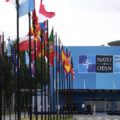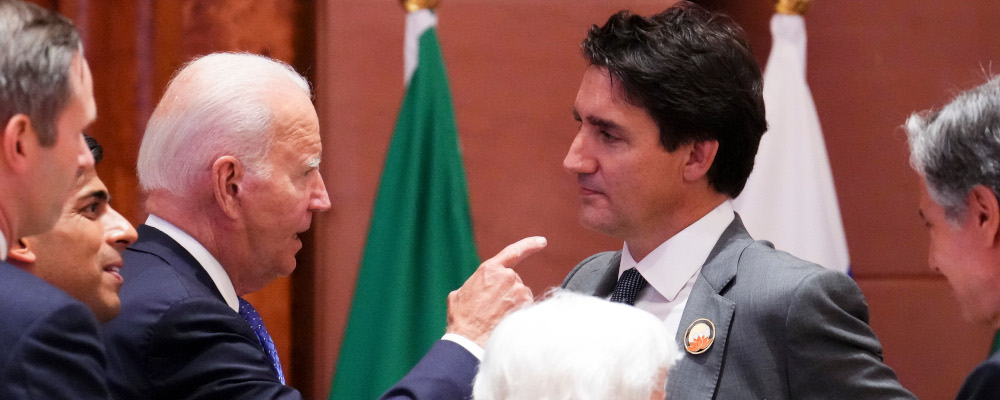It’s been a chaotic and newsworthy past couple of weeks in Ottawa. But we cannot cause the latest political developments to obscure the fact that we recently learned of evidence that the Indian government carried out the murder of a Canadian citizen on our soil. Or that our major allies such as the U.S., the U.K., and Australia could barely bring themselves to issue much more than perfunctory responses. The entire episode is a sign that Canada’s global credibility has been diminished such that the shared values of sovereignty and rule of law are no longer worth a robust shared response when a competing goal, such as India’s strategic value as a counterweight to China, exists. This must be a wake-up call for Canadians.
With a lack of unequivocal support from key allies as they pursue wider objectives of great power politics, it should be abundantly clear that we have to rouse ourselves and reclaim the country’s credibility on the world stage—or risk being an ongoing target for foreign interference and other threats to our national sovereignty.
The Trudeau government’s claims about a post-national world have collapsed in the face of a fragmenting global order marked by a resurgence of nationalism and the return of hard power. The post-war peace dividend that enabled Canadian society to turn inward or pursue soft power interests has been fully spent.
In this new world, it isn’t enough to talk about a “feminist foreign policy” or treat foreign policy as an extension of domestic politics. We must take our defence and security seriously and dedicate the scarce resources of attention and funding to strengthen them.
The first step for the government is to release the evidence used to reach its conclusion about the Indian government’s involvement in the killing of Canadian citizens. There may be concerns from a security or diplomatic perspective in releasing classified information, but there are different options —including high-level briefings for the opposition leaders—to satisfy Canadians about the facts.
This is important because we’ve already been subjected to retaliation by the Indian government (namely the suspension of visas) and there’s a probability that we’ll face more reaction. Indeed, India-based hacker groups have already been targeting military and government websites with sustained cyberattacks. The public’s willingness to accept those costs and consequences will be bolstered if it’s satisfied that Canada is in the right. Erring on the side of information therefore is crucial to building and sustaining trust with Canadians.
In the medium term, the experience of the past several weeks has reinforced that the Canadian government must set about rebuilding its relationship with Washington. As this situation should make clear, the overriding foreign policy priority in the United States is to counter China. Canada’s lack of military capacity and its perceived weakness on Chinese security issues means that our once-guaranteed position as America’s unquestioned ally has now severely degraded and must be repaired. This is not to suggest that the Americans will no longer entertain our leaders or support us in the international sphere, but that Washington no longer sees value in a blank-cheque relationship. For all Canadians, the country’s declining standing with the Americans should be an earthquake. Reversing this trend will require us to significantly boost military spending and use our unique Canadian advantages to reassert ourselves.
Needless to say, last week’s announcement of further cuts to national defence is precisely the wrong response. Gone are the days when Canada could continue to balk at NATO’s spending target of two percent of GDP.

Rebuilding our national defence should begin with a major investment in a revitalized Royal Canadian Navy, which stands as our first line of defence and must be able to credibly defend our Pacific, Atlantic, and Arctic waters. Besides domestic security, a renewed Navy would also be able to provide more effective assistance abroad in both humanitarian missions and military ways. While we will never match the Americans or the British in fleet capability, we must be able to credibly contribute in meaningful ways to common defence and security strategies.
A defence agreement with the U.S. similar to (or inclusion in) the recent AUKUS Treaty would be a policy worth pursuing. Replacing the current fleet of 40-year-old second-hand British diesel submarines would be a sign of a renewed seriousness. Replicating the agreement the Australians made to acquire U.S. nuclear submarines would be an even bigger step. Such capability would provide global reach and strategic influence, as well as provide a real tool to assure sovereignty in the Arctic, which should be a primary Canadian contribution to global security.
There are various other steps that the Canadian government must take in light of last week’s extraordinary developments and broader geopolitical trends around the world. But these represent early and necessary ones. We must awake from the post-Cold War slumber that has caused us to miss the big trends that are reshaping geopolitics and challenging Canadian national interests.
Recommended for You
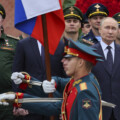
‘Putin has no intention of stopping this war’: Sir Bill Browder on three years of war in Ukraine and how Russia is evading sanctions
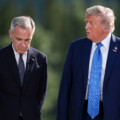
The Notebook by Theo Argitis: Trump halts trade talks, Carney’s trade-offs and John McCallum’s legacy
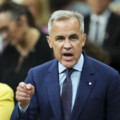
The Weekly Wrap: The Liberals must abandon their internet regulation agenda
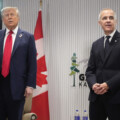
‘A direct attack’: The Roundtable on Trump’s surprise trade announcement and Canada’s immigration debacle
